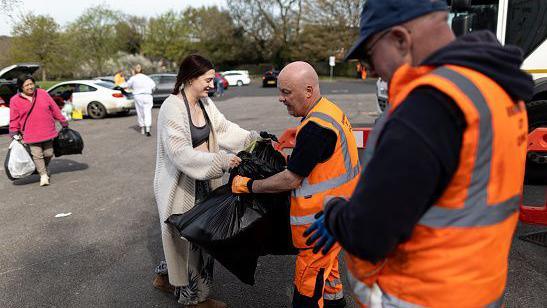Bin strike policing cut as waste builds up again
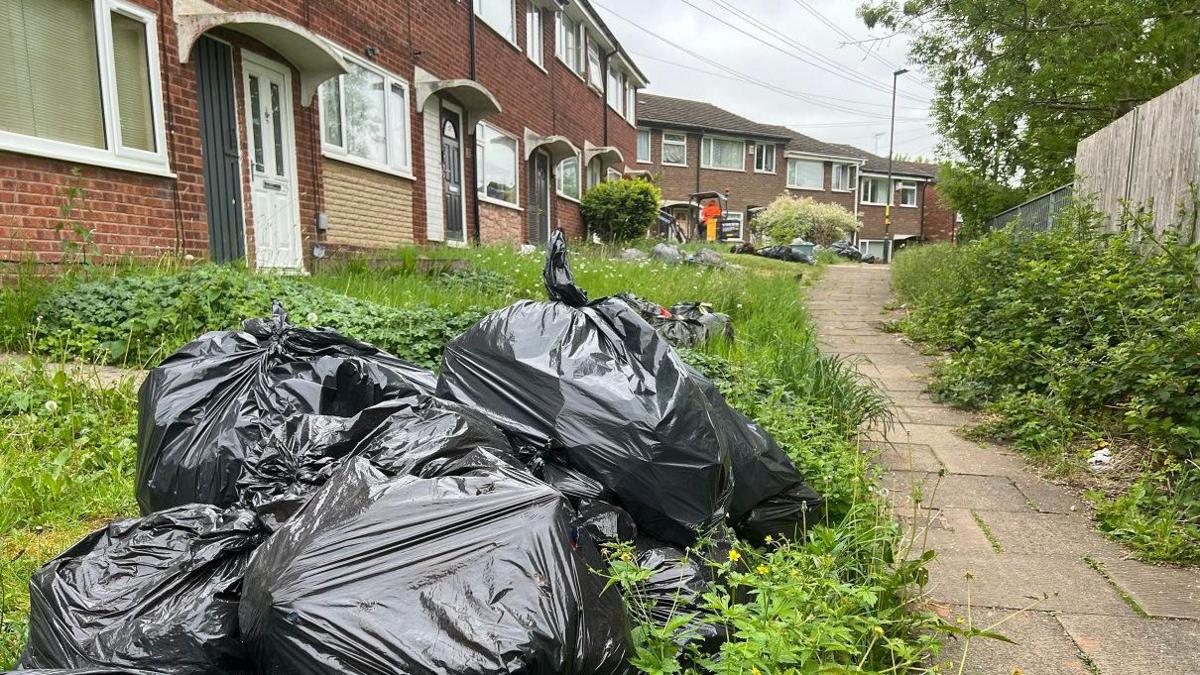
Bin collections have continued to be disrupted by industrial action
- Published
The number of police officers sent to Birmingham bin strike picket lines has been cut, it has emerged.
It comes after waste collections were disrupted on Thursday when bin lorries were blocked by striking refuse workers from leaving two depots and rubbish once again piles up around the city.
A West Midlands Police spokesperson said officers were still sent to pickets but did not explain why they reduced the number while the city council said it was warned of the move just hours beforehand.
Workers who are Unite union members have been involved in all-out industrial action since 11 March in a pay row that now also includes a dispute over bin lorry drivers' wages.
Police patrols had helped to secure the smooth exit of trucks in recent weeks but reduced powers meant piles of rubbish were starting to reappear in parts of the city.
The use of those powers, under Section 14 of the Public Order Act, external, a law used around public gatherings, were "no longer in place", a force spokesperson confirmed,
The legislation had been used to prevent strikers from delaying trucks as they left depots in the city.
Why are Birmingham bin workers on strike?
- Published17 November
Striking bin workers block depot lorries again
- Published15 May
At the Lifford Lane depot on Friday morning, the BBC saw a number of lorries driving up to the picket line and stopping, before turning the vehicles back around - despite the gates remaining open.
One of the striking workers, Danny Taylor, said they were waiting to talk to drivers and loaders as they left the site which he said members were "legally allowed to do".
"What we're doing is, we're waiting for the wagons to approach us so we can legally picket and talk to them," he added.
"Obviously we're not allowed onto private property, so the lads are just waiting for the wagons to come to us, hence the line."
Mr Taylor told the BBC that workers at the picket line were not stopping drivers leaving the depot and insisted they were "free to leave".
"But for some reason today we don't know why they're hanging back, they're not approaching us.
"They're free to leave, we're not holding them back, we just want to talk to them and then slow walk them out.
"We're not holding them back, they are free to leave."
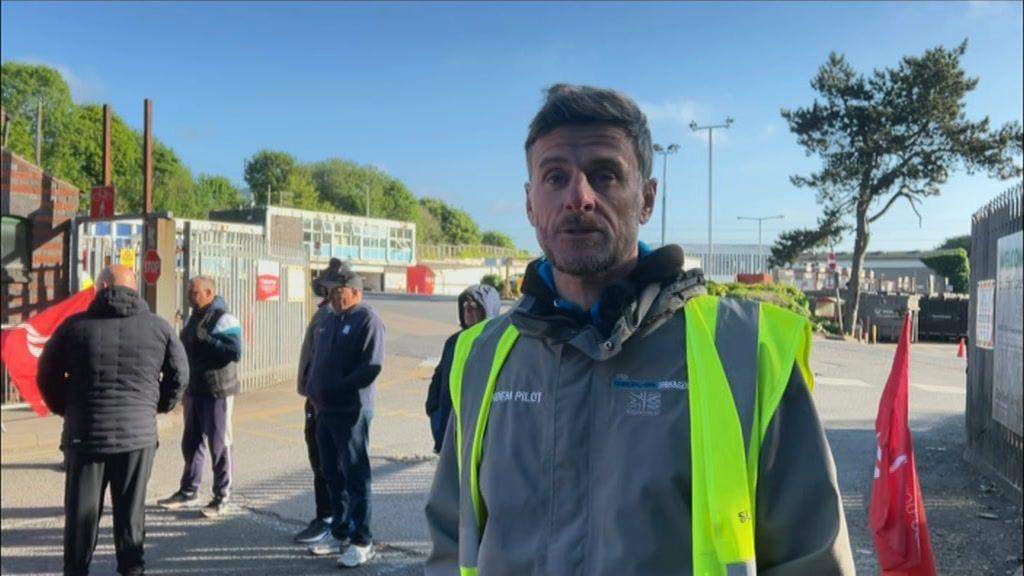
Danny Taylor told the BBC union members were not stopping drivers and they were "free to leave"
On Thursday, the locked gates at the Atlas, Tyseley and Lifford, Kings Norton depots, as police withdrew officers, meant collections in the south, centre and east of the city were disrupted with waste left uncollected, the city council said.
At the height of the dispute before the powers were used, more than 17,000 tonnes of waste built up in the city, leading to the authority declaring a major incident.
In April, days after the incident was declared, Chief Constable Craig Guildford laughed when faced with suggestions he should resign over a failure to intervene at the depots.
But days later, following the visit of government ministers to the city, officers stepped in to prevent delaying tactics by striking workers.
A police spokesperson said: "There continues to be a police presence at the sites in line with our core policing responsibilities" but they did not acknowledge why the reduction in officers involved had been made.
The BBC had been told the city council was given less than 24 hours notice of the changes and the authority warned disruption was likely to increase in the coming days.
"We are grateful for [the police's] ongoing support and will be looking at all of our options so we are able to try and maintain a service to residents," a council spokesperson said.
"However, if we see the level of disruption we saw at the start of the strike this may not be possible."
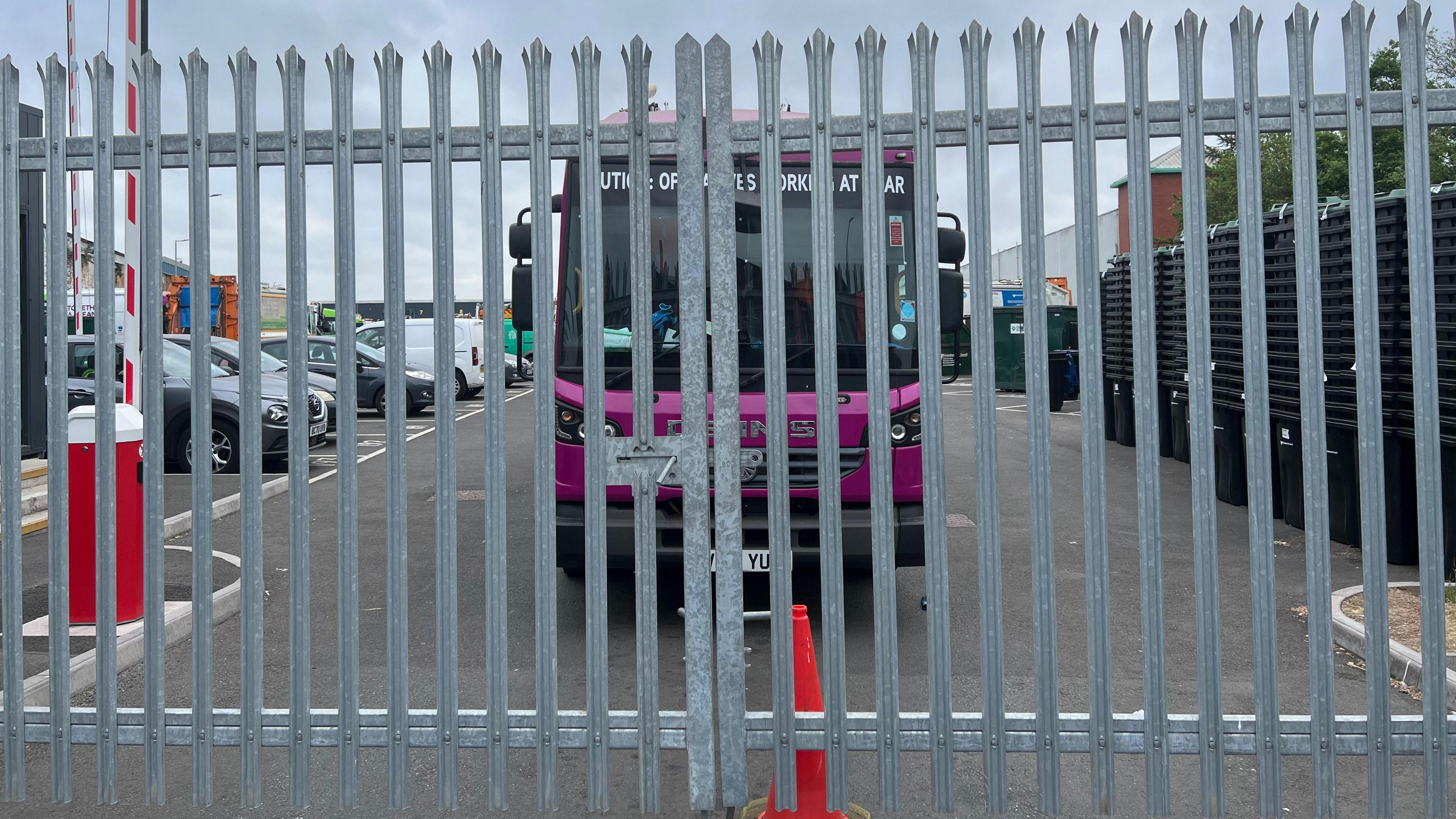
Trucks remained behind locked gates at two of the council's three depots on Thursday
Although the picture is patchy, a council source acknowledged that the amount of uncollected rubbish had started to build again and likened managing the situation to "a game of jenga."
Residents have told the BBC that despite the council claiming to offer everybody a rubbish collection once a week, some areas had not had collections since mid April.
When this was put to the council in April, it said disruptions were down to Unite members blocking refuse trucks from leaving depots and therefore preventing crews from collecting residents' bins.
In March, workers protesting at the Tyseley depot insisted they were only stopping lorries leaving if they had safety concerns.
Previously, police officers at the site stopped strikers' obstruction tactics by threatening arrest and fines.
The West Midlands force told the BBC in April it had not yet issued fines because bin workers on the picket line were co-operating.
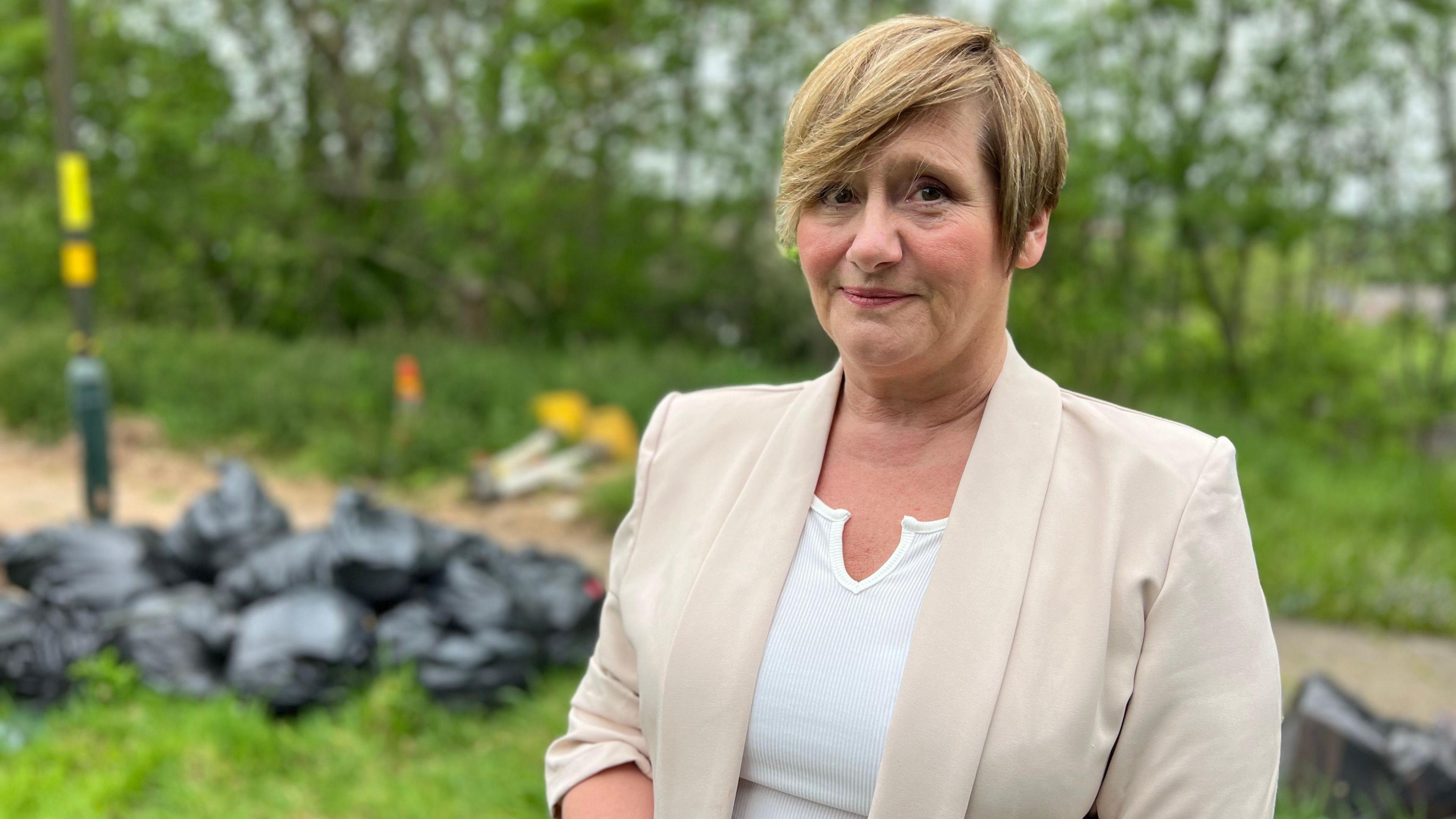
Candy Manders, an NHS worker, said she had not had regular collections in her area
Candy Manders, an NHS worker from Kings Norton, said she had had only two collection since the strike started.
"It is a public health hazard and despite the strike a service still needs to be provided," she said.
"We are still also paying for a service that isn't being delivered."
Speaking at Prime Minister's Questions on Wednesday, Sir Keir Starmer called on Unite to end the strike "immediately", and said the government continued to support the council so that the backlog of rubbish collections did not reappear.
Last week, the council said it had cleared 100% of the large piles of waste in the hot spot areas and 85% across the rest of the city.
While recycling collections remain suspended, it has urged residents to continue putting out household waste bins for collection.
"Before industrial action began, our crews were collecting about 1,000 to 1,100 tonnes of waste per day," the local authority's website reads.
"However, in recent weeks, our crews have collected 1,500 to 1,700 tonnes of waste each day, with a reduced team.
"This highlights the need for transformation in the service we provide to residents."
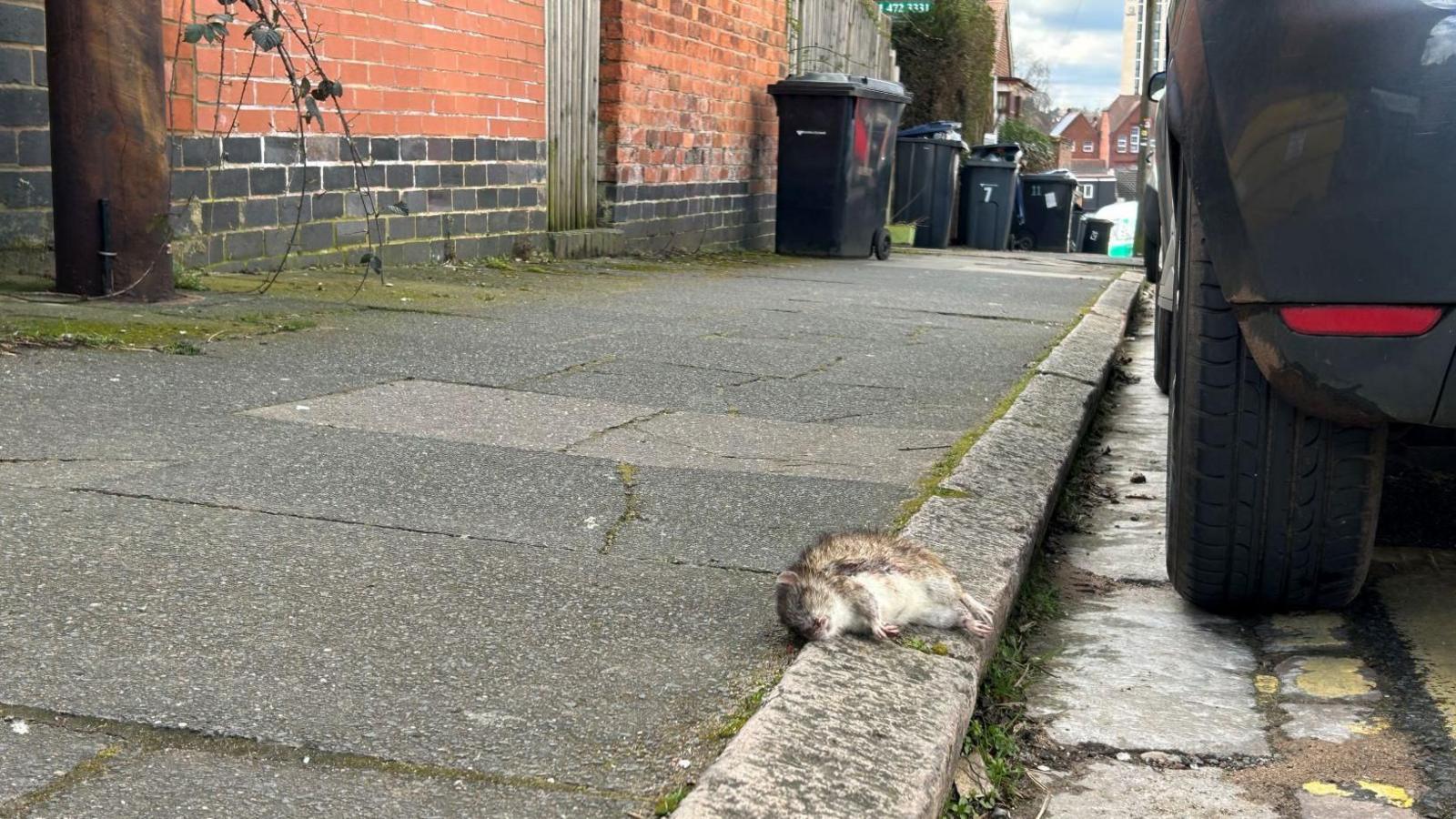
A rat was seen on the corner of St Edwards Road during the BBC's visit to the area in March
The strike initially centred on a dispute with the council over its decision to remove Waste Recycling and Collection Officer roles, but the row has since expanded after the authority revealed there were also plans to cut the pay of bin lorry drivers.
The council recently said it must make changes to comply with equal pay laws, but it was committed to finding a fair and sustainable deal.
It added "negotiations are continuing" and previously told the BBC its job evaluation process was "fair and transparent".
The strike has attracted worldwide coverage with images of large waste piles and claims of rats as big as cats.
Related topics
- Published15 May
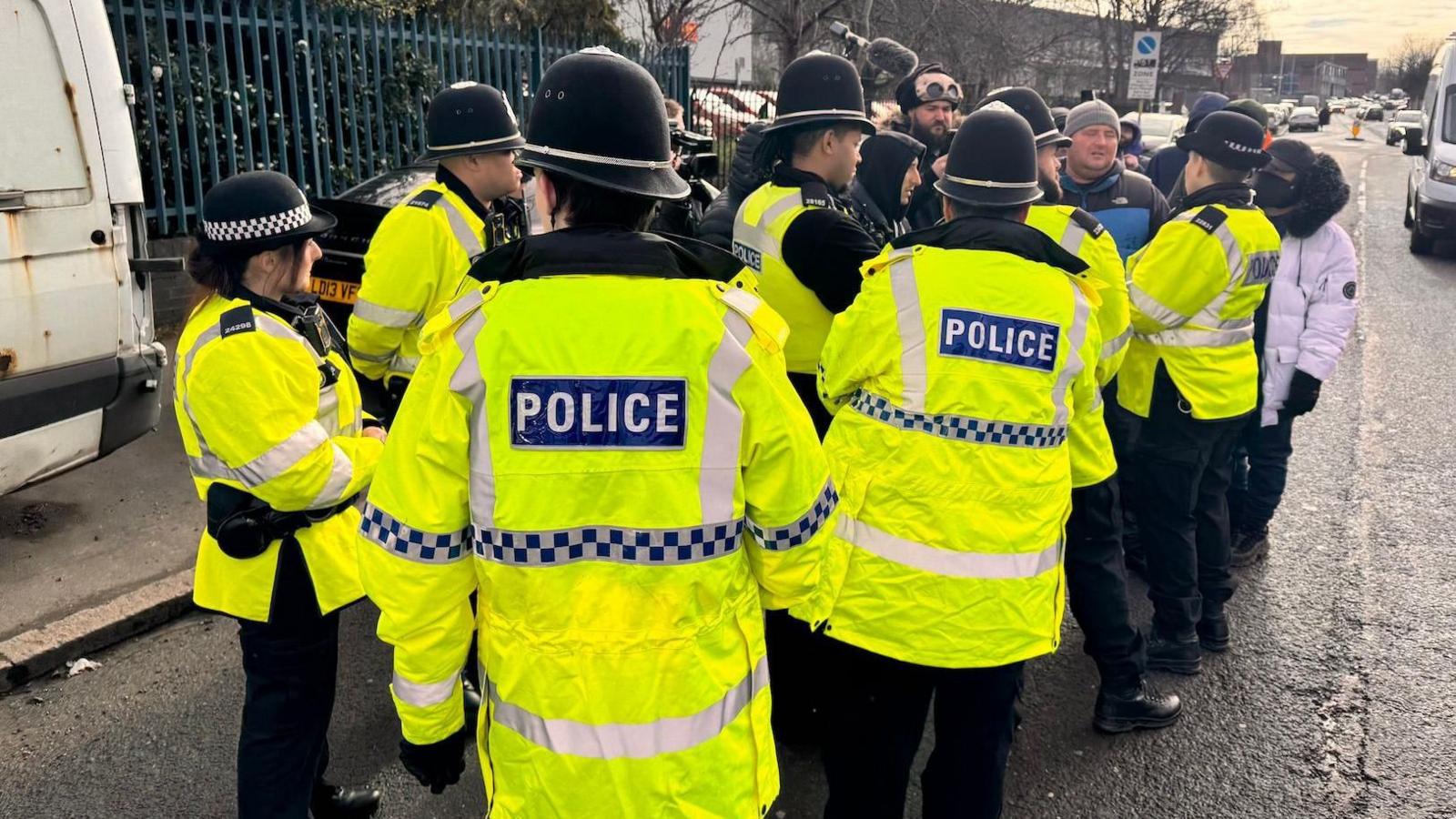
- Published11 May
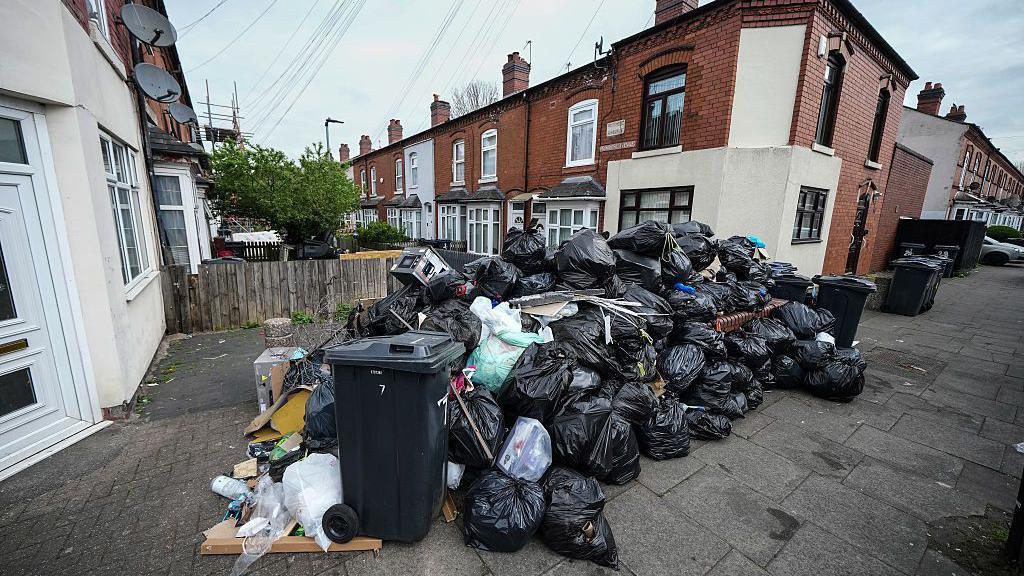
- Published19 April
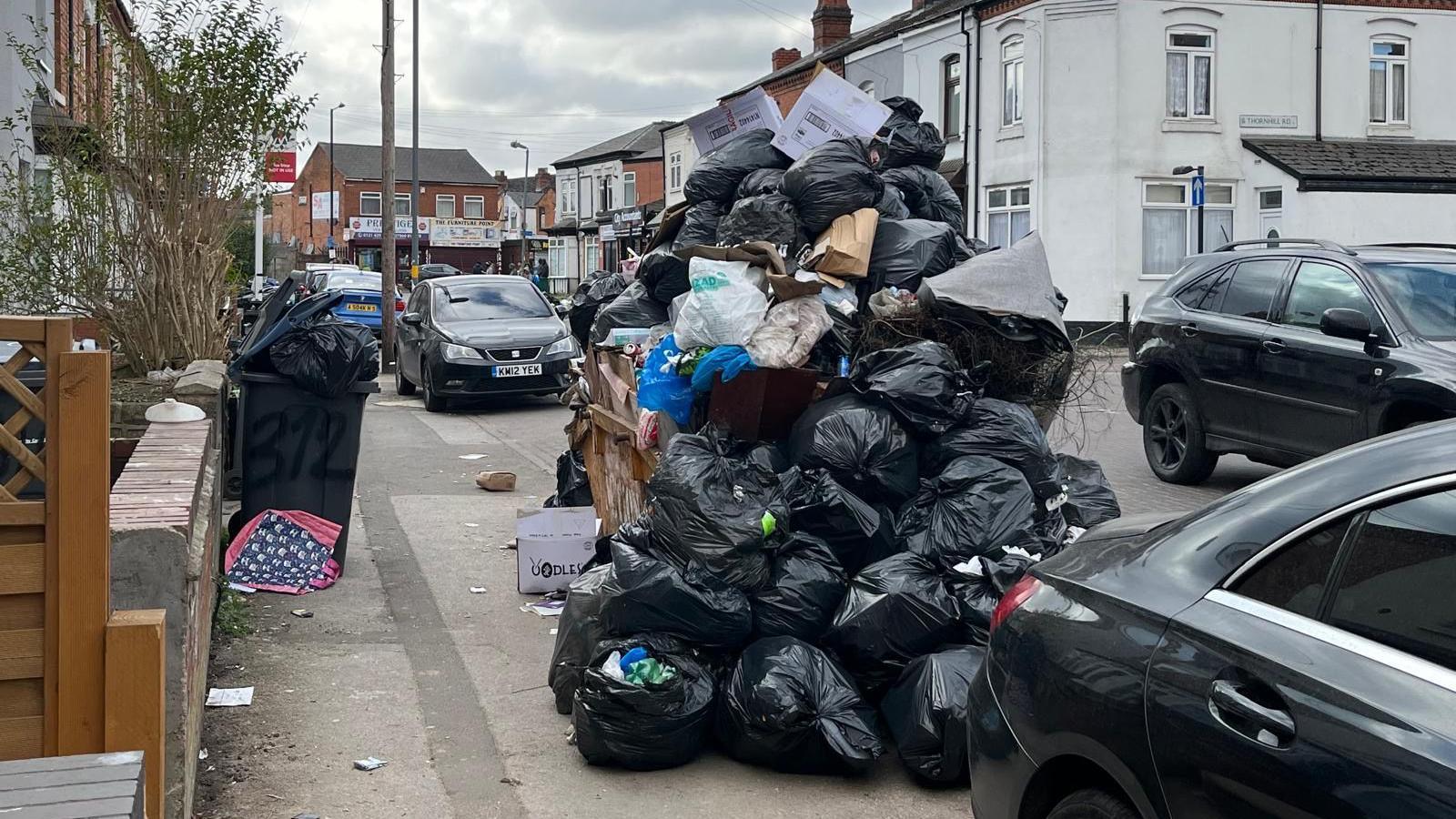
- Published2 April

- Published26 February

- Published17 November
